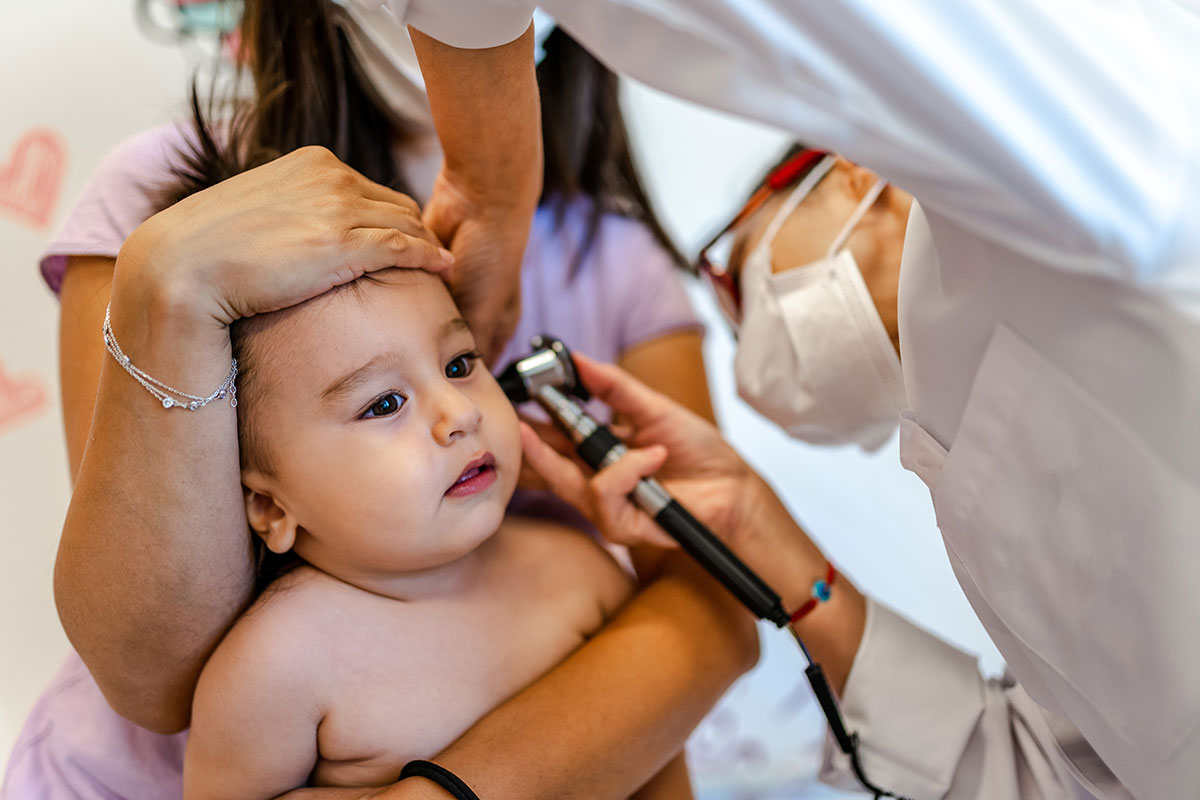
Popular Locations
- Yale New Haven Children's Hospital
- Yale New Haven Hospital - York Street Campus
- Yale New Haven Hospital - Saint Raphael Campus

Published November 11, 2022

It is a tale as old as … the 1970’s when ear tubes became popular. A baby starts daycare or has older siblings in school and is plagued by recurring ear infections that are often treated with antibiotics. Ear tubes remain popular — with an estimated 700,000 insertions a year in the United States.
“I tell parents to trust their gut when it comes to hearing,” says Bernadette Palmese AuD, program manager, Pediatric Audiology, Yale New Haven Children’s Hospital. “When children are very young it is difficult to determine if they have ear infections or hearing difficulties. However, pediatric otolaryngologists, also known as ear, nose throat (ENT) specialists have tools to objectively measure if there is fluid behind the ear in about ten seconds.”
The American Academy of Otolaryngology-Head and Neck Surgery (AAO-HNS) guidelines recommend ear tubes evaluation for children with three ear infections in three months or 5-7 in a twelve month period.
“Fluid behind the ear drum for any extended period of time can affect hearing and speech and language development,” said Dr. Palmese. “Left untreated, infections can affect the ossicles (three small bones in the ear) that are crucial for hearing."
Ear tubes are medical grade silicone plastic tubes that are secured in the ear with a small incision. The tubes allow fluid and air to flow freely between the external auditory canal and the middle ear space.
The procedure takes about 15 minutes. The tubes usually fall out after a year, when the child’s anatomy is large enough to drain on its own. A follow-up evaluation will ensure hearing concerns are resolved.
Erik Waldman MD chief, Pediatric Otolaryngology, Yale New Haven Children’s Hospital explains that it is important to take the whole family and patient into consideration when making a decision around ear tubes.
“At Yale New Haven Children’s Hospital our exceptional audiologists perform hearing evaluations before and after surgery,” said Dr. Waldman. “Additionally, we only use pediatric anesthesiologists which is important to many of our patients.”
Dr. Waldman explains the average age for ear tubes is about 10 months to two years. He notes that a key benefit of ear tubes is they allow antibiotics to be applied directly to the infection through ear drops, minimizing medication side effects.
“Children with tubes have no swimming or bathing restrictions,” said Dr. Waldman. “The best part of this procedure is how it improves quality of life for families.”